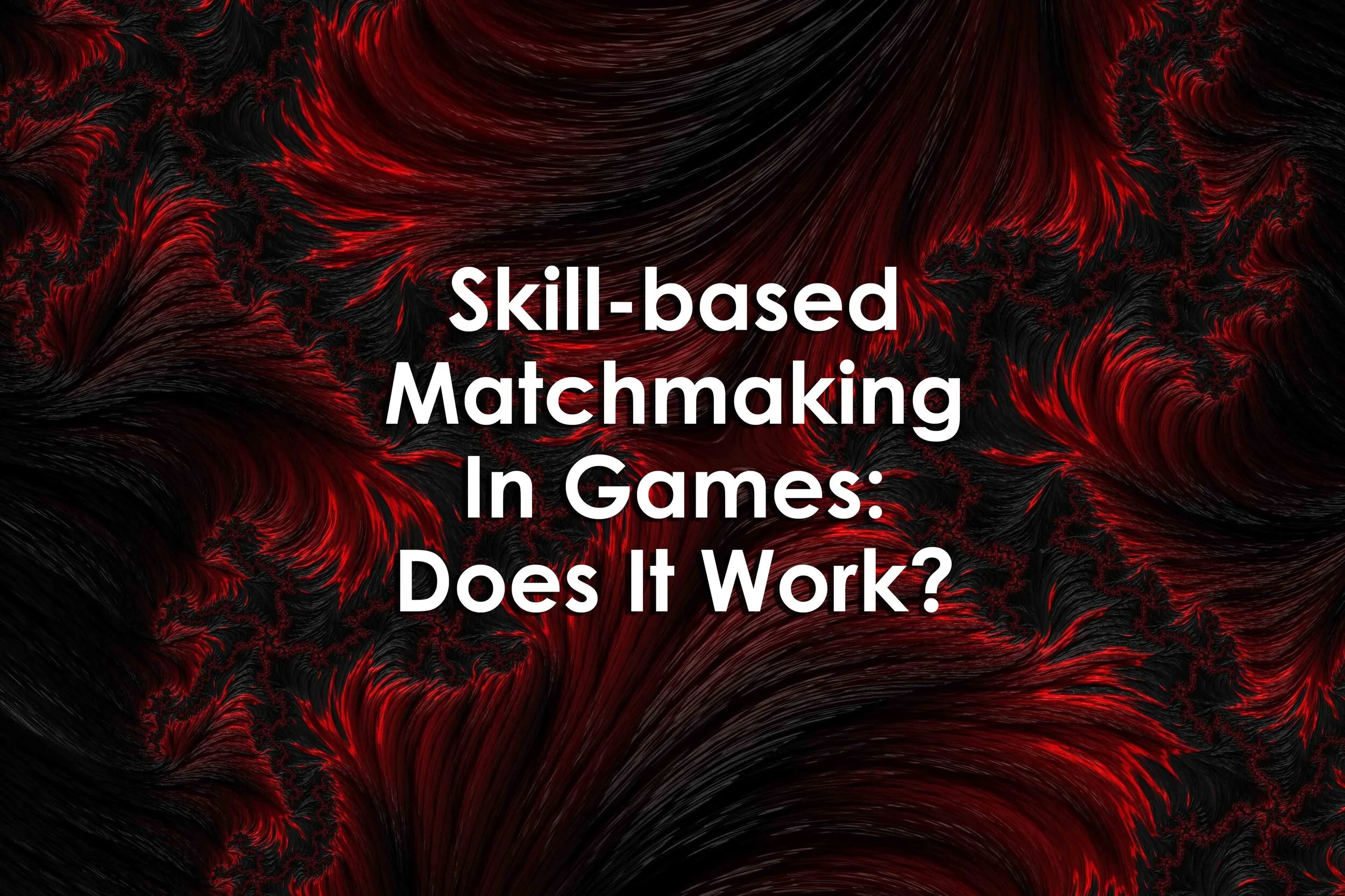Skill-based Matchmaking In Games: Does It Work?
Skill-based Matchmaking In Games: Does It Work?
Skill-based Matchmaking In Games: Does It Work?
Online gaming means that thousands of people can come together and play amongst themselves. Popular games like Call of Duty really spawned the idea of gamers playing with other people from all over the world. What tends to happen is lobbies are formed in-game, and different users are placed into them. When all the spots are filled up, the game can commence. Regardless of what game you play, this is the typical way of things happening.
Matchmaking for online games
This creates a big question for game developers: how do you decide who ends up in each lobby? Do you do it randomly? Is it based on your location? Or, should you assign people to different lobbies and put them with teammates/opponents of a similar skill level? This is known as skill-based matchmaking (SBMM) and it's a hotly debated topic in the gaming world. The idea behind it is simple, but does it actually work when put into practice?
The benefits of skill-based matchmaking
Gaming has changed dramatically over the last two decades. Back when online multiplayer games were first introduced to the mainstream world, it was far more casual. E-sports wasn't really a thing, so most people ended up at around a similar level. Today, things are dramatically different. You have professional gamers who spend all their life playing a game to get as good as possible. They are paid to do so, and the birth of gaming supplements like MyMod has seen that the pros can give themselves an edge. Plus, the funding from professional e-sports teams lets them have access to better equipment, creating something of an uneven playing field.
Money’s influence in professional gaming
There's lots of money in professional gaming, leading many casual gamers to try and reach this level. In turn, this creates games where you have lots of highly elite players that try hard all the time. Then, you also have casual players that are just looking to have fun, but their games are ruined because they keep coming up against pros or semi-pros. This is where SBMM is beneficial as it separates the professional and hardcore gamers from ones that just do it for fun and don't have the time to get to a high level of skill. Thus, the good players play amongst each other while the worse ones play with people of a similar level. As such, it keeps casual gamers playing the game for longer.
The disadvantages of skill-based matchmaking
While the theory behind this idea is good, it isn't as refined as it could be. The main problem is that non-professional gamers who happen to be good at the game end up getting penalized. Every game puts them with people of a similar skill-level, which tends to be pro gamers who try extremely hard. Every gaming session is more intense, with the joy sucked out of it as other players are so keen to win. This means that, if you're slightly good at a game, you can't play it casually anymore. You always have to play with full focus, or else you'll just get beaten every single time.
Skill-based matchmaking broken down
Furthermore, there have been issues in some games with how players are ranked based on skill-levels. Usually, people are put into categories by the developers, and the lobbies are formed of other players in the same category. The issue with this is that each category has a broad spectrum of ability levels. Think about it from the perspective of a soccer league table - like the Premier League. All of these teams are in the top league, yet some are far better than others. The weaker teams lose every week and have a terrible time. This applies to gamers that may have enough skill to be categorized in one league, but they're far worse than most other people. So, they're technically bundled with people of the same 'skill level,' but the differences in ability are too much for them to have any fun.
Does SBMM work, or should it be scrapped?
After looking at the possible benefits and disadvantages of SBMM, can we say for sure if it works? The jury is still out, but most gamers argue that it is ruining games. Largely because the old system seemed to work fine! Having a mix of abilities in a game means everyone can have fun and the game isn't as serious. To be honest, the best approach is probably to scrap SBMM and include separate game modes for more serious gaming. This way, if the wannabe pros want to play competitively, they can go into lobbies specifically designed for that. Some multiplayer games do apply this system, and it seems to work perfectly fine!


